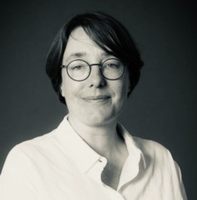29 June 2023
Aula A, Aula B & Aula Unione 1
Chair: Manuela Perrotta
Discussant: Chiara Bodini
What does it mean to conduct science in the public interest in times of a general emergency? Recent studies of expert advice during the Covid-19 pandemic in the UK have noted the exceptional circumstances in which science gained broad and practical public relevance, as Covid-19 affected the whole UK population (Green et al, 2022). They have also argued that institutionalised relations between science and politics contributed to the crisis in the UK, as secrecy and reliance on a narrow range of expertise allowed underexamined assumptions to gain disproportionate influence on government policy, especially in the early phase of the pandemic (Pearce, 2020; Ballo et al, 2022). In view of this, it becomes especially important to examine how scientists devised alternative strategies to intervene in the pandemic by making science public. To this end, I am currently conducting a social study of Independent Sage, the group of scientists that formed in May 2020 to provide independent scientific advice to the UK government and public public on how to minimise deaths and support Britain’s recovery from the COVID-19 Crisis." Using methods of situational analysis (Clarke, Friese et al, 2017), I investigate how Independent Sage sought to "make a difference" in the public stituations (Barry, 2021; Marres, forthcoming) of the Covid-19 emergency by intervening in three topical areas: test and trace, covid-related inequalities, and science-informed governance in society (such as schools). In this talk, I will present a situational analysis of IndieSage's interventions in these areas based on expert interviews with members and societal partners of Independent Sage as well as document analysis. On this basis, I will formulate some practical, methodological and aspirational answers to the question with which this abstract begins.
